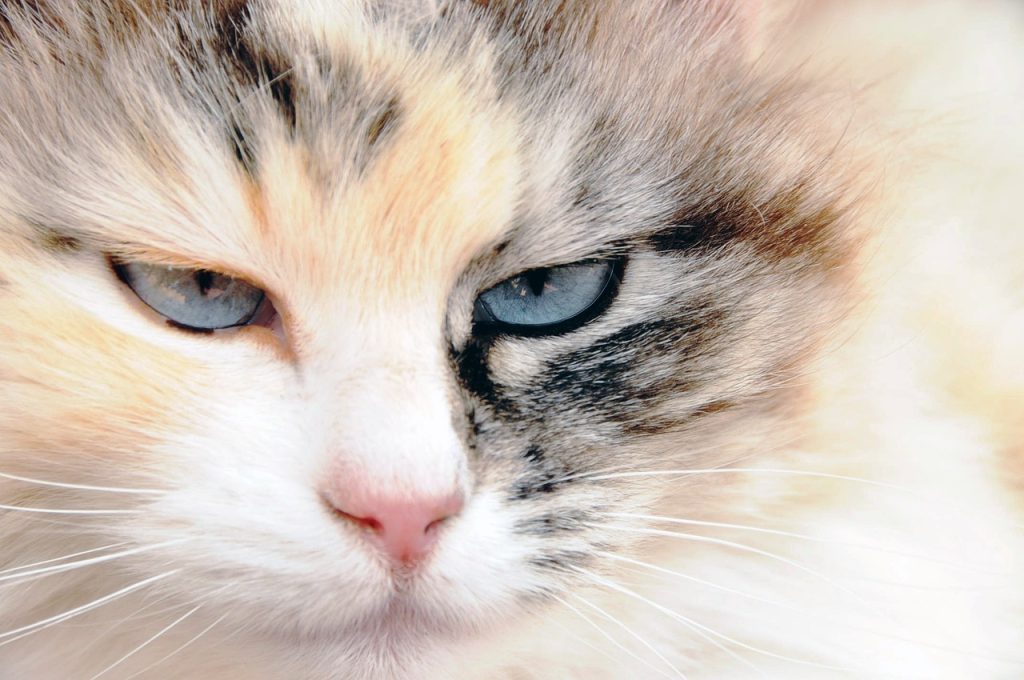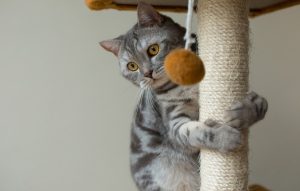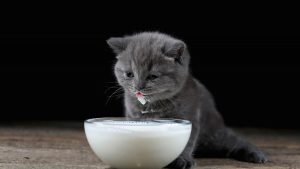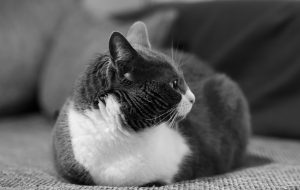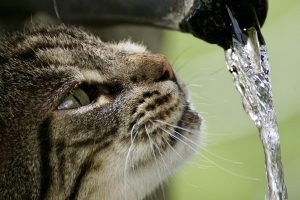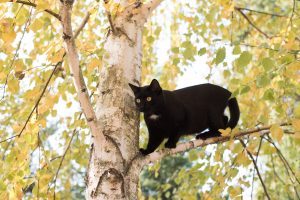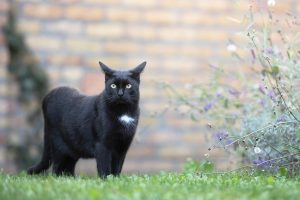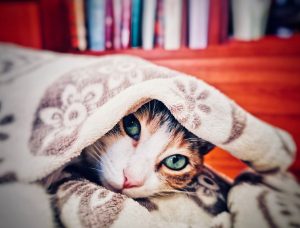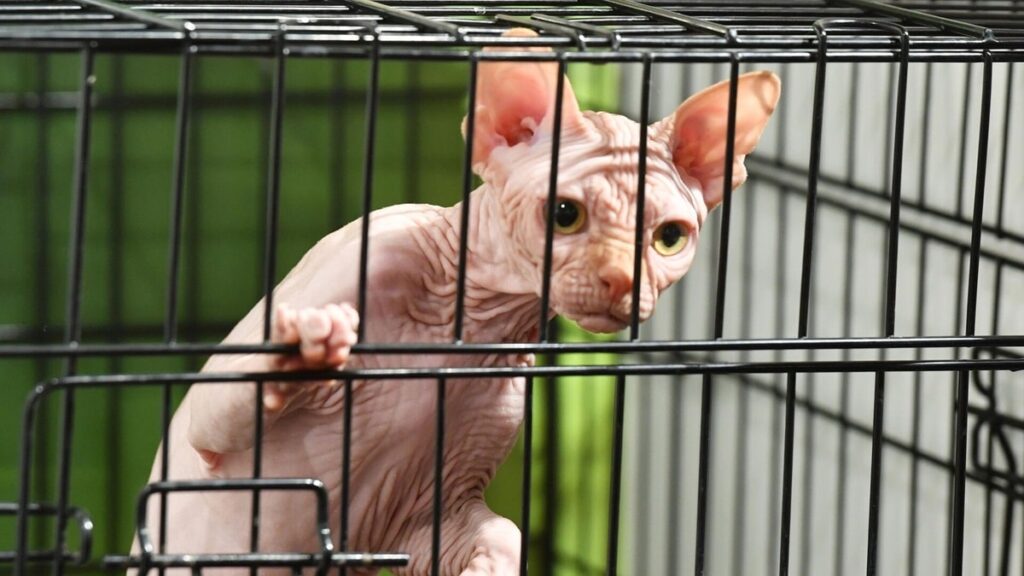Why Does a Cat Hiccup: Overview of Harmless and Dangerous Causes, as well as First Aid.
Hiccups are not only characteristic of humans but also of their pets. Although they are not common in cats, they require special attention. The reason is that some causes of this condition can pose a serious health risk. In our article, we will explain how to recognize deviations from the norm and what to do if a cat hiccups too frequently and for a prolonged period.
Hiccups in cats are a result of mechanical irritation or compression of the vagus nerve, which connects the internal organs to the central nervous system (CNS). It is accompanied by uncontrollable contractions of the diaphragm, the muscle located between the abdominal and thoracic cavities. Hiccups can be easily recognized by the specific sound during inhalation. It occurs due to the reflexive closure of the vocal cords and temporary disruption of regular breathing.
The vagus nerve got its name due to its impressive length. It extends from the brainstem to the abdominal cavity, as if it “wanders” throughout the entire body.
Why do cats hiccup?
Both adult cats and kittens can hiccup. Let’s first explore the reasons that are not age-dependent.
Physiological, or harmless, causes.
Most physiological causes are related to feeding and eating habits. These include:
- Overeating. An excessive amount of food weighs down the stomach, causing excessive pressure on the diaphragm.
- Low-quality food. Not all human food is suitable for cats. Some of them can irritate the stomach.
- Failure to maintain hydration. In the long run, a lack of fluid intake can lead to digestive disorders, chronic constipation, and dehydration.
- Uncomfortable position during meals. A bowl placed too low or too high forces the animal to stretch in an unnatural position, creating an unnatural position of the esophagus.
- Consuming cold food or water. In response to a brief decrease in body temperature, the body activates all muscles, including the diaphragm, to generate heat.
- Startle during mealtime.
General hypothermia and pregnancy also contribute to irritation of the vagus nerve. In the case of pregnancy, the growing uterus displaces the diaphragm.
Another possible cause is trichobezoars. These are hairballs that form from swallowed hair during grooming. Fluffy animals with a dense undercoat are at risk. To prevent stomach and intestinal blockage, they should be groomed at least once a week during shedding and at least 3-4 times a week on other days.
Pathological causes.
Pathological hiccups do not go away on their own and are usually accompanied by accompanying symptoms. The main causes include:
- Neurological disorders (intracranial hypertension, encephalopathy);
- Disorders causing organism intoxication (meningitis, encephalitis, helminthiasis, kidney diseases);
- Gastrointestinal tract pathologies (gastritis, stomach ulcer, pancreatitis);
- Respiratory and cardiovascular diseases (bronchitis, pneumonia, stroke, arrhythmia);
- Foreign body obstruction in the esophagus;
- Allergy.
If a cat is sick, its condition will normalize only after recovery. Suppressing hiccups using different methods will only provide temporary relief, so such “treatment” is completely pointless.
Psychogenic causes.
This group includes any factors that contribute to stress and strong fear. Cats are very anxious creatures. They can be easily thrown off balance:
- Lack of attention;
- Prolonged loneliness.
- Competition for food and territory with another animal.
- Moving;
- Presence of unfamiliar people in the house;
- Taking a trip by transportation;
- Visiting a doctor or a groomer.
Prolonged stress is as dangerous as pathologies. It negatively affects behavior and is accompanied by apathy, complete loss of appetite, and exhaustion.
Normal and deviations from it.
Physiological hiccups last no more than a day. They pass suddenly without any external assistance, and the spasms themselves usually last around 7-10 minutes. The episodes are accompanied by a distinctive sound and sharp contractions of the animal’s sides. Behavioral symptoms may include slight tension and temporary freezing in one position.
If a cat hiccups too frequently or for an excessively long duration, it is best to show them to a veterinarian. The following accompanying symptoms pose particular danger:
- Lethargy and apathy;
- Nausea and vomiting;
- Loss of appetite or complete loss of appetite;
- Sneezing;
- Coughing and difficulty breathing;
- Urinary incontinence;
- Periodic loud meowing indicating pain;
- Vision disturbance;
- Coordination impairment.
Exhausting seizures that affect overall activity are abnormal. They can provoke life-threatening complications and require mandatory treatment.
What to do if a cat hiccups: when assistance is needed?
Pets can usually manage episodic hiccups on their own. However, the frequency of these episodes can be minimized. To achieve that, it is necessary to:
- Do not exceed the recommended food portion.
- Exclude forbidden foods from the diet.
- Provide free access to a water bowl and, if necessary, increase the attractiveness of drinking by placing a special fountain in the house.
- Purchase a convenient bowl taking into account the height of your pet.
- Do not give food and water directly from the refrigerator.
- Do not walk the cat in cold weather and eliminate sources of drafts in the house.
- Regularly brush the fur and use malt paste to help eliminate it from the body.
- Increase the duration of joint playtime and eliminate stress factors, if present.
In the presence of accompanying symptoms, only a veterinarian can help the animal. If your pet has lost its usual vitality and appears unwell, be sure to take them for diagnosis.
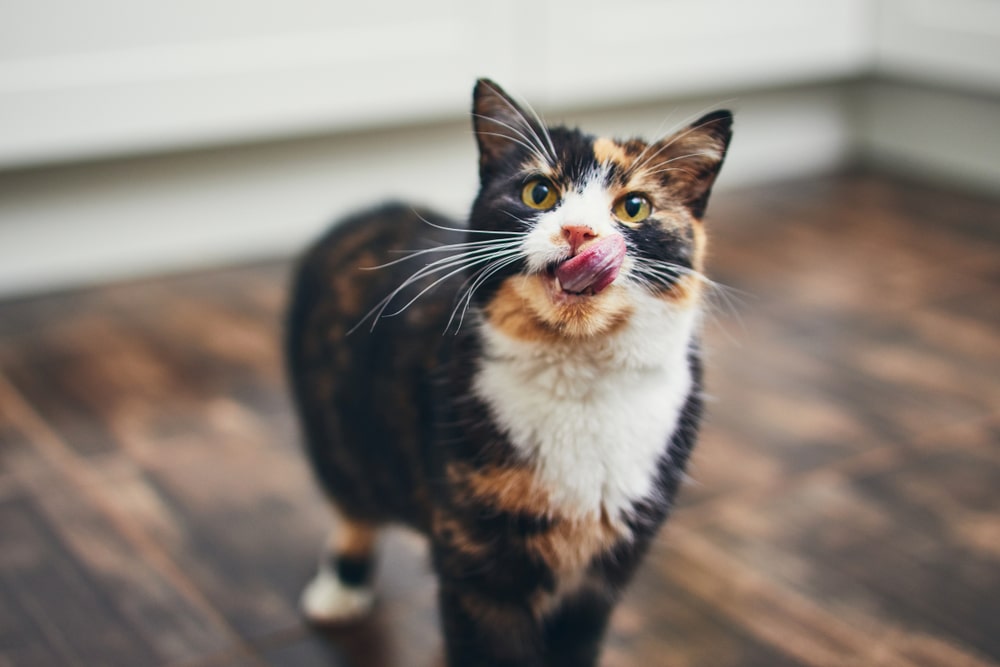
Hiccups in a kitten.
In an unborn kitten, intrauterine hiccups can be observed. It helps train their diaphragm and respiratory organs, facilitating the expansion of the lungs for independent breathing. Its remnants can also be observed for about 3 days after birth.
Hiccupping kittens in the mother’s womb can be identified by the rhythmic contractions of the pregnant cat’s abdomen.
The infant organism lacks developed thermoregulation and is vulnerable to low temperatures. If a kitten hiccups frequently, make sure it’s not cold. In the first week of life, the “nest” temperature should not be lower than 28-30°C.
A separate case: why a cat hiccups after eating.
Hiccups after eating should be considered separately. In addition to the reasons mentioned above, it is caused by swallowing air along with the food. Unlike human jaws, cat jaws are unable to move in different directions and chew incoming food.
The at-risk group includes perpetually hungry pets that eagerly pounce on food and “inhale” it in an instant. They should be fed more frequently than usual, not only in the morning and evening but 3-4 times a day. Feeding them smaller meals will protect the animal not only from hiccups but also from hungry vomiting.
Conclusion.
If your cat starts hiccupping, don’t panic and try to determine the cause. If you suspect a pathology, refrain from self-treatment and schedule an appointment at a veterinary clinic. In all other cases, the problem can be solved by changing the current care and maintenance conditions, namely by eliminating triggering factors such as improper nutrition and stress.
Турбота, любов і хвостики — наші тренди 2026.
⚠️ We suggest that you read all the opinions on our portal and take note of them at your own discretion. Do not self-medicate! In our articles we collect the latest scientific data and opinions of authoritative experts in the field of health care. But remember: only a doctor can diagnose and treat.
The portal is intended for users over 13 years old. Some materials may not be suitable for children under the age of 16. We do not collect personal data from children under 13 without parental consent.We have a small request. We strive to create quality content about pet care, and we make it available for free to everyone because we believe everyone deserves accurate and useful information.
Advertising revenue only covers a small portion of our costs, and we want to continue to provide content without having to increase advertising. If you have found our content useful, please support us. It only takes a minute, but your support will help us reduce our reliance on advertising and create even more useful articles. Thank you!
